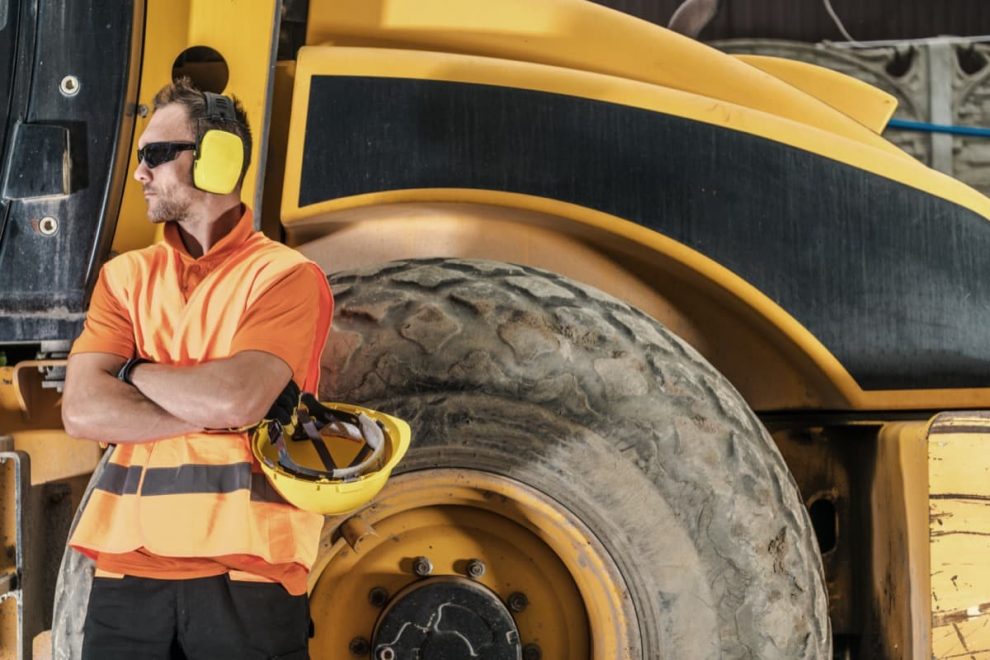Summer has arrived! The temperatures are rising, and the sun is spending more hours in the sky every day. What better reason not to be stuck behind a desk all day? Many people prefer to work outside, and if you’ve read this far, you’re probably one of those people. We completely understand.
If you’re looking for a skilled, good-paying job that will keep you outdoors during the summer—and even year-round in some areas—we have a few suggestions. Have you considered becoming a heavy equipment operator? What about an electrical power-line installer and repairer? Read on to learn about these jobs and more, and how to break into their respective fields.
Heavy Equipment Operator
Using heavy equipment machinery necessitates legitimate professional training. While these machines are generally a huge help in terms of getting work completed swiftly and effectively, there is a lot that can go wrong if these machines are operated by somebody who has not learned the correct way to handle them.
This is why many looking to get work on these machines turn to heavy equipment operator school, such as the heavy equipment operator training course at West Coast Training, to learn how to properly handle them. Potential dangers are also why training is necessary to complete most jobs involving heavy equipment operators, and said training is usually a prerequisite of the job.
So what makes it worth the necessary training and why is being a heavy equipment operator such a desirable outdoor job to have during the summer months?
Because the construction industry compensates workers well, and the more you are trained to do, the greater your employment options and pay level will be. There is almost always a plethora of jobs in this area, both governmental and non-governmental, and the amount of money one can make goes up dramatically when an individual has been to heavy equipment operator school and is a correctly trained heavy equipment operator.
However, when learning about how to become a heavy equipment operator, you must understand that a wide variety of machines exist and each one requires a different level of knowledge to operate. So if you are interested in becoming a heavy equipment operator, do yourself a favor and figure out ahead of time which machines you want to learn how to operate and focus your time and energy on them.
Each machine is very different, so check ahead of time if the school you are planning to enroll in has a strong track record of helping its graduates become proficient on those machines. For example, at West Coast Training’s heavy equipment operator course you’ll be learning all major and minor equipment.
Getting the proper training is key to being in-demand in the summer months in a way that makes you virtually guaranteed to be spending those summer months making some nice money as a heavy equipment operator.
To that end, your summer can be as financially and professionally positive as you want if you have the training employers desire in a heavy equipment operator. In other words, if you just want a job on the line as a worker, that can likely be had without a lot of training. But if you want most good jobs as a heavy equipment operator, the odds of your employment go up substantially if you’re trained well on a wide variety of machines.
Of course, not only do these jobs pay well, but there is always a high demand for people who can do them, so if you learn your craft and find a way to perfect it, it could lead to a long career of highly paid employment with many different potential employers to choose from.
All of that said, while being a heavy equipment operator is unquestionably one of the best and highest-paying outdoor jobs one can have during the summer, there are others that can be quite fulfilling as well.
Wind Turbine Technician
Being able to help produce clean, effective energy for people to use in their daily lives will always be an in-demand skill. While these jobs do require physical labor and post-secondary certification, they are generally not in short supply if you have the skills, and they pay very well.
So, what is a wind turbine technician’s actual responsibilities? Essentially, he diagnoses problems involving wind turbine generators or control systems; climbs wind turbine towers to inspect, maintain, or repair equipment; tests electrical components of wind systems with devices such as voltage testers, multimeters, oscilloscopes, infrared testers, or fiber optic equipment; and starts or restarts wind turbine generator systems to ensure proper operations.
Electrical Power-Line Installer and Repairer
The good news is you can do this job with nothing more than a high school education. However, to become capable, most line installers and repairers require a lot of hard work in terms of on-the-job training, oftentimes as apprentices.
So what do they do? Basically, they install or repair electrical power systems and telecommunications cables, including fiber optics. While the job pays relatively well, it can be dangerous, as it requires working with high-voltage electricity and at great heights. Plus, it can be very demanding physically.
Solar Photovoltaic (PV) Installer
Much like electrical power-line installers, you can do this job with nothing beyond a high school education. In order to learn the craft, most in this line of work spend at least a year doing on-the-job training, but may also take classes at a technical school or community college.
They spend their time installing, assembling, and maintaining solar panel systems on rooftops or other structures. The bulk of this work is done outdoors, but PV installers sometimes work in attics and crawl spaces to connect panels to the electrical grid.
Petroleum Engineer
Unlike some other outdoor jobs that can be done in the summertime, petroleum engineering generally requires at least a bachelor’s degree, though it does pay extremely well (generally in the six-figure range).
Petroleum engineering is the field of engineering that deals with the exploration, extraction, and production of oil and natural gas. A petroleum engineer figures out the best way to drill for and extract oil and natural gas at a particular well and oversees drilling operations to resolve any potential problems. They also decide how to stimulate any wells that are not producing at expected levels and develop new drilling tools and techniques, while finding fresh ways to extract remaining oil and gas from previously existing wells.
While petroleum engineers spend plenty of time in offices or laboratories, they also travel a lot and work outdoors at drilling sites, generally for extended periods (and to a greater degree than normal during summer months).












Add Comment